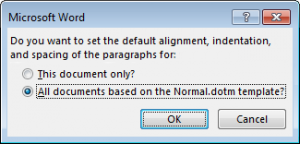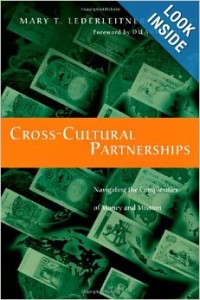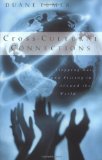 The recent versions of Word have a default line spacing that many users find annoying. This page shows how to set it to single space.
The recent versions of Word have a default line spacing that many users find annoying. This page shows how to set it to single space.
Change the Default Line Spacing – from Microsoft Office website
A collection of tips, ideas, and links to help missionaries
 The recent versions of Word have a default line spacing that many users find annoying. This page shows how to set it to single space.
The recent versions of Word have a default line spacing that many users find annoying. This page shows how to set it to single space.
Change the Default Line Spacing – from Microsoft Office website
 This $5 ebook is written to help you write better letters to your supporters. While new technologies provide many different ways to communicate, the missionary letter remains the basic tool for most missionaries. Your letter must attract and keep the readers’ attention and communicate your ministry clearly and effectively. This short 64-page book explains the principles behind authoring a letter that will be read and lead to the prayer and financial support you seek.
This $5 ebook is written to help you write better letters to your supporters. While new technologies provide many different ways to communicate, the missionary letter remains the basic tool for most missionaries. Your letter must attract and keep the readers’ attention and communicate your ministry clearly and effectively. This short 64-page book explains the principles behind authoring a letter that will be read and lead to the prayer and financial support you seek.
“Each one must give as he has decided in his heart, not reluctantly or under compulsion, for God loves a cheerful giver.” 2 Corinthians 9:7
Do you have a plan for your missions giving? No, not “planned giving” or “legacy giving,” both pseudonyms for estate planning, but a real plan for how you give money to missions in the here and now. Have you ever taken the time considered your priorities and “plot” out your personal missions budget? There are thousands of missionaries, organizations, projects, and causes making appeals. Without prior planning, one tends to spend money on the strongest appeal, the most compelling letter, the slickest website, the most persuasive speaker, or in other words….the missionary agency that spent the most on its marketing campaign. We, also, give to projects that pull at our heart strings…like starving children. Sending money to help upgrade a mission agency’s email server or paying for a missionary to get legal advice from a national lawyer about how to set up an NGO (non-government organization) in a new country just doesn’t make us reach for our wallets. So sit down and take some time to evaluate and plan your missions giving.
You say, “That is all fine and good but where do I start? Do you have a model of what my mission’s giving should look like?” We are so glad you asked…. … Read more
Computer issues are hard enough to endure but when you live overseas and face the prospect of having to allow technicians to change the language settings to work on the computer…and you have no idea what they are doing or if you will be able to even operate the computer after it is returned…then computer issues can be maddening (although I was once reminded by my pastor when I was helping him with his computer, that computer problems can contribute to your sanctification if you allow them too).
Recently, my husband and I fixed laptops for a couple of “family” members who had “issues” with them. In the process, we used a tool that has a “free” version that is very helpful at cleaning up “trash” that accumulates on a computer overtime as one uses the internet and moves around files and programs. The program also can detect known viruses. If your computer seems a little slow or you have owned it for more than a year or two, then your desktop or laptop might benefit from a “spring cleaning”. The wonderful program is called CCleaner. Listed below are instructions for downloading and running CCleaner on your computer. … Read more
… Read more
 How much time do you spend monitoring donations or better yet trying to figure out what is coming in and how much you more you need to raise? If you are not a numbers person, then these kinds of tasks eat away at your energy. They drain you of your creativity and zeal. Face it, most missionaries would rather be out with people than sitting at a desk tracking numbers. Think about what would happen if you had most of that time back to…..talk to new donors, cultivate relationships, or do other ministry.
How much time do you spend monitoring donations or better yet trying to figure out what is coming in and how much you more you need to raise? If you are not a numbers person, then these kinds of tasks eat away at your energy. They drain you of your creativity and zeal. Face it, most missionaries would rather be out with people than sitting at a desk tracking numbers. Think about what would happen if you had most of that time back to…..talk to new donors, cultivate relationships, or do other ministry.
DonorElf can help take the frustration out of knowing exactly how much monthly support you have at any given time. DonorElf keeps track of your donations and your donors. DonorElf is not a complicated computer program for geeks – it is a website application for real people. If you can use Facebook or Gmail, DonorElf is for you. The application can even download donation information from your missions agency. For $12 per month, its features include donations, pledges, progress toward goals, mailing list /contact management, reports, lost donor tracking, and more. A small price to pay for a chunk of your time and a bit of your sanity back!
I often tell new missionaries leaving for their field of service not to call home for 30 days (except for a quick “I arrived safely” call). That statement usually gets some raised eyebrows, pouty faces and questions with a desire for clarification.
The first month on the field is critical as patterns set during the first month often continue throughout the missionary term or career. In our technological time, it is quite easy for missionaries to remain strongly connected with family and friends in their home country through phone calls, text messages, Facebook, Skype, and other means. Since those are established relationships, it becomes easy for the new missionaries to default to communicating with those back home during down time or challenging circumstances instead of building a new “local” support network and community. It is vital for the overall ministry for the new missionary’s roots to go deep.
The first month on any field is full of new experiences, challenges, surprises, and unmet expectations. When a new missionary communicates with family and friends back home, those on the other end of the conversation may have little understanding or ability to help. Often, their only answer may be to advise the new missionary to return home or to introduce negative attitudes about the new country. Missionaries need to rely on God, teammates, national believers, and others on the field as their main source of strength. Communication with friends and family back home is great but if it keeps the missionary from “putting down roots” in his new environment then the help can quickly become fatal to the missionary’s ministry.
So, call home upon arrival to let them know you made it, and that you’ll resume a more normal communication in 30 days. You’ll be glad you did.
 Unprecedented numbers of Christian missions agencies, churches, organizations, and individuals are seeking to broaden and deepen their work through partnerships with non-Western nationals. Cross-cultural partnerships have many advantages but they can give rise to a perplexing number of challenges. While definitely not a new trend, this emphasis on multicultural teamwork is a rapidly growing one, and there is sufficient history to demonstrate some of the challenges in these cross-cultural partnerships. One of the greatest areas of conflict revolves around finances. In this book, Mary Lederleitner, a cross-cultural consultant at Wycliffe, tackles some of the common issues regarding finances in partnerships.
Unprecedented numbers of Christian missions agencies, churches, organizations, and individuals are seeking to broaden and deepen their work through partnerships with non-Western nationals. Cross-cultural partnerships have many advantages but they can give rise to a perplexing number of challenges. While definitely not a new trend, this emphasis on multicultural teamwork is a rapidly growing one, and there is sufficient history to demonstrate some of the challenges in these cross-cultural partnerships. One of the greatest areas of conflict revolves around finances. In this book, Mary Lederleitner, a cross-cultural consultant at Wycliffe, tackles some of the common issues regarding finances in partnerships.
Money is a key element of mission work. Without funding, missions agencies would cease to exist. The proper use of money (and the sometimes laborious accounting for that money) is essential in stewardship and compliance. The author discusses many aspects involving money and how each of them are perceived in different cultures. For instance, she addresses the differences that Western and non-Western partners have in relation to ideas about collectivism, lending, and hoarding.
The author speaks to some of the negative attitudes that Westerners can bring to partnership, such as negative attribution of motives, quick judgments, and paternalism. She mentions how distance, lack of contact, and cultural nuances can cause us to assume the worst in the other person. She presents proactive ways to change these attitudes
Accountability is key in handling ministry funds to prevent fraud, to ensure proper allocation of donor restricted funds, and to enable proper record keeping. Too often, the financial reports from non-Western partners are inadequate or absent. Additionally, the constant requests for reports from western colleagues can damage relationships as it undermines trust, which is key in any partnership. The author gives examples of ways to contextualize accountability and fraud prevention to work together to ensure proper use of funds without damaging the relationship.
This book would be beneficial to missionaries, managers at multi-national missions organizations, financial staff supporting national partners, and church leaders or others seeking to fund the work of nationals. Many readers with missions experience will resonate with the examples given as they think of their own similar experiences. For a broader view of cross cultural issues, read Cross-Cultural Connections by Duane Elmer.
 Do you find the new tabbed Inbox in Gmail less than helpful? Luke at FatWalr.us gives step-by-step instructions on how to get rid of it. It’s simple and easy to get your old Inbox back.
Do you find the new tabbed Inbox in Gmail less than helpful? Luke at FatWalr.us gives step-by-step instructions on how to get rid of it. It’s simple and easy to get your old Inbox back.
How to Revert Your Gmail Inbox – FatWalr.us


 Are you looking for a book to help you prepare for cross cultural service or to read together with your team? Here are three great choices. Cross Cultural Connections by Duane Elmer uses his now classic “Cultural Adjustment Map” and provide discussion questions at the end of each chapter. Ministering Cross-Culturally by Sherwood Lingenfelter is a shorter read and provides an assessment to help you determine your differences in key areas. Serving with Eyes Wide Open by David Livermore discusses Cultural Intelligence , or CQ, and how short-term missions teams can better prepare for ministry.
Are you looking for a book to help you prepare for cross cultural service or to read together with your team? Here are three great choices. Cross Cultural Connections by Duane Elmer uses his now classic “Cultural Adjustment Map” and provide discussion questions at the end of each chapter. Ministering Cross-Culturally by Sherwood Lingenfelter is a shorter read and provides an assessment to help you determine your differences in key areas. Serving with Eyes Wide Open by David Livermore discusses Cultural Intelligence , or CQ, and how short-term missions teams can better prepare for ministry.